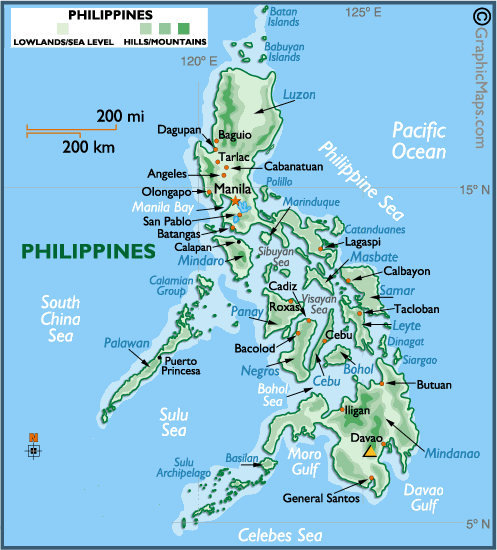L a n g u a g e :
Evidence of Change in
Philippine Culture and History
Filipino, the national language of the Filipino people, has evolved through time
and it has coincided with history's changes without us noticing. In spite of our
many dialects in different cities, Filipinos need a common language to
communicate as one nation. It is impossible for our culture and history to
evolve with our language stagnant. After all, language and culture are
inseparable with our vocabulary growing as a mirror of our culture.
 Our very first way of writing was called Baybayin and it is a common
mistake for us Filipinos to think that the very first writing system was Alibata.
This is a pre-Hispanic Tagalog writing system (Baybayin) but when the Spanish
Era came about, the name "Alibata" derived from Alpha Beta (which are
from the Greek alphabet) was adopted by the Filipino people. Upon the Spanish
arriving, our language took a sharp turn. Christianity was the tool used to get
to the Filipinos' way of life. The word "Impyerno" did not exist in our
vocabulary until the Spaniards arrived but the word "Langit" (which means
sky) was the only existing word that referred to the after-life and the
consequences of our deeds in the world. As our country
experienced much changes, our language progressed as well. Our Filipino language
has undeniably a lot of borrowed words from the Spanish
Our very first way of writing was called Baybayin and it is a common
mistake for us Filipinos to think that the very first writing system was Alibata.
This is a pre-Hispanic Tagalog writing system (Baybayin) but when the Spanish
Era came about, the name "Alibata" derived from Alpha Beta (which are
from the Greek alphabet) was adopted by the Filipino people. Upon the Spanish
arriving, our language took a sharp turn. Christianity was the tool used to get
to the Filipinos' way of life. The word "Impyerno" did not exist in our
vocabulary until the Spaniards arrived but the word "Langit" (which means
sky) was the only existing word that referred to the after-life and the
consequences of our deeds in the world. As our country
experienced much changes, our language progressed as well. Our Filipino language
has undeniably a lot of borrowed words from the Spanish language and they are
still being used at the present. Words like "mesa", "silya", "kwarto", "libro",
"lapis" and many many more are borrowed from the Spanish language. Why?
These things were brought here by the Spanish themselves so the chairs, tables
and the like did not exist during the Pre-Spanish time which forced Filipinos to
borrow words from them. Filipinos were not taught the Spanish language and so
they had to adopt certain words that were needed in conversing during the
Spanish time. Since Christianity was known all-over, saints were very common in
their teachings. We will notice today that many many cities in the Philippines
are named after saints and other Spanish words. Santa Ana, Santa Rosa, San Juan, Trinidad,
La Union and the use of "del Norte" and "del Sur" have been used
to name some of our cities and provinces. Although, the Filipino-named provinces
or cities are usually Filipino phrases and words. "Makati"(itchy), "Bulacan"
(derived from Bulaklak), "Bohol" (tangled), "Pangasinan" (asin
which means salt), "Cavite" (kawit which means hook), "Sorsogon" (Solsogon,
a Bicolano term which means to follow the river) and the like are a few
examples.
language and they are
still being used at the present. Words like "mesa", "silya", "kwarto", "libro",
"lapis" and many many more are borrowed from the Spanish language. Why?
These things were brought here by the Spanish themselves so the chairs, tables
and the like did not exist during the Pre-Spanish time which forced Filipinos to
borrow words from them. Filipinos were not taught the Spanish language and so
they had to adopt certain words that were needed in conversing during the
Spanish time. Since Christianity was known all-over, saints were very common in
their teachings. We will notice today that many many cities in the Philippines
are named after saints and other Spanish words. Santa Ana, Santa Rosa, San Juan, Trinidad,
La Union and the use of "del Norte" and "del Sur" have been used
to name some of our cities and provinces. Although, the Filipino-named provinces
or cities are usually Filipino phrases and words. "Makati"(itchy), "Bulacan"
(derived from Bulaklak), "Bohol" (tangled), "Pangasinan" (asin
which means salt), "Cavite" (kawit which means hook), "Sorsogon" (Solsogon,
a Bicolano term which means to follow the river) and the like are a few
examples.
When the Americans came, names of streets and cities like Taft, Mckinley Road,
Forbes Park, Clark Airbase started. Our vocabulary keeps expanding because of
our vast history. We were introduced to different cultures and even if we kept
our own identity as Filipinos, there are some parts of our culture that have
integrated the Spanish and American culture.
Today, the changes are very evident especially through our language.
Technology's sway on our way of life was inevitable. Filipino has adopted many
words which refer to technology like "telebisyon", refrigerator, cell phone,
air-conditioner, "kompyuter" and words like abroad, advertisement (adbertisment)
and the like are evidences that our culture is not behind in technology. Text
messaging has invaded the Philippines and it's very unlikely to find an urban
city or person that hasn't heard of it. Metro Manila alone sends millions and
millions of text messages per day and this makes it easy for everyone to
communicate whenever they're apart. Communicating has never been easier and this
is more of an advantage for every Filipino. Since texting is very common,
Filipinos have made their own language like, "I-tetext nalang kita" which means
"i'll send you a text message".
A good thing about the Filipino language is that it doesn't look so foreign to
tourists. This is because our vocabulary contains words from the Spanish and the
English language as well. Today, English is probably a language mostly all
educated Filipinos have mastered and speak in their everyday life. An evidence
of this is how we have so many call centers in the country. English is so common
in our country that tourists have an easier time getting around compared to
other countries like China, Japan, Thailand and the like.
 Our very first way of writing was called Baybayin and it is a common
mistake for us Filipinos to think that the very first writing system was Alibata.
This is a pre-Hispanic Tagalog writing system (Baybayin) but when the Spanish
Era came about, the name "Alibata" derived from Alpha Beta (which are
from the Greek alphabet) was adopted by the Filipino people. Upon the Spanish
arriving, our language took a sharp turn. Christianity was the tool used to get
to the Filipinos' way of life. The word "Impyerno" did not exist in our
vocabulary until the Spaniards arrived but the word "Langit" (which means
sky) was the only existing word that referred to the after-life and the
consequences of our deeds in the world. As our country
experienced much changes, our language progressed as well. Our Filipino language
has undeniably a lot of borrowed words from the Spanish
Our very first way of writing was called Baybayin and it is a common
mistake for us Filipinos to think that the very first writing system was Alibata.
This is a pre-Hispanic Tagalog writing system (Baybayin) but when the Spanish
Era came about, the name "Alibata" derived from Alpha Beta (which are
from the Greek alphabet) was adopted by the Filipino people. Upon the Spanish
arriving, our language took a sharp turn. Christianity was the tool used to get
to the Filipinos' way of life. The word "Impyerno" did not exist in our
vocabulary until the Spaniards arrived but the word "Langit" (which means
sky) was the only existing word that referred to the after-life and the
consequences of our deeds in the world. As our country
experienced much changes, our language progressed as well. Our Filipino language
has undeniably a lot of borrowed words from the Spanish language and they are
still being used at the present. Words like "mesa", "silya", "kwarto", "libro",
"lapis" and many many more are borrowed from the Spanish language. Why?
These things were brought here by the Spanish themselves so the chairs, tables
and the like did not exist during the Pre-Spanish time which forced Filipinos to
borrow words from them. Filipinos were not taught the Spanish language and so
they had to adopt certain words that were needed in conversing during the
Spanish time. Since Christianity was known all-over, saints were very common in
their teachings. We will notice today that many many cities in the Philippines
are named after saints and other Spanish words. Santa Ana, Santa Rosa, San Juan, Trinidad,
La Union and the use of "del Norte" and "del Sur" have been used
to name some of our cities and provinces. Although, the Filipino-named provinces
or cities are usually Filipino phrases and words. "Makati"(itchy), "Bulacan"
(derived from Bulaklak), "Bohol" (tangled), "Pangasinan" (asin
which means salt), "Cavite" (kawit which means hook), "Sorsogon" (Solsogon,
a Bicolano term which means to follow the river) and the like are a few
examples.
language and they are
still being used at the present. Words like "mesa", "silya", "kwarto", "libro",
"lapis" and many many more are borrowed from the Spanish language. Why?
These things were brought here by the Spanish themselves so the chairs, tables
and the like did not exist during the Pre-Spanish time which forced Filipinos to
borrow words from them. Filipinos were not taught the Spanish language and so
they had to adopt certain words that were needed in conversing during the
Spanish time. Since Christianity was known all-over, saints were very common in
their teachings. We will notice today that many many cities in the Philippines
are named after saints and other Spanish words. Santa Ana, Santa Rosa, San Juan, Trinidad,
La Union and the use of "del Norte" and "del Sur" have been used
to name some of our cities and provinces. Although, the Filipino-named provinces
or cities are usually Filipino phrases and words. "Makati"(itchy), "Bulacan"
(derived from Bulaklak), "Bohol" (tangled), "Pangasinan" (asin
which means salt), "Cavite" (kawit which means hook), "Sorsogon" (Solsogon,
a Bicolano term which means to follow the river) and the like are a few
examples.